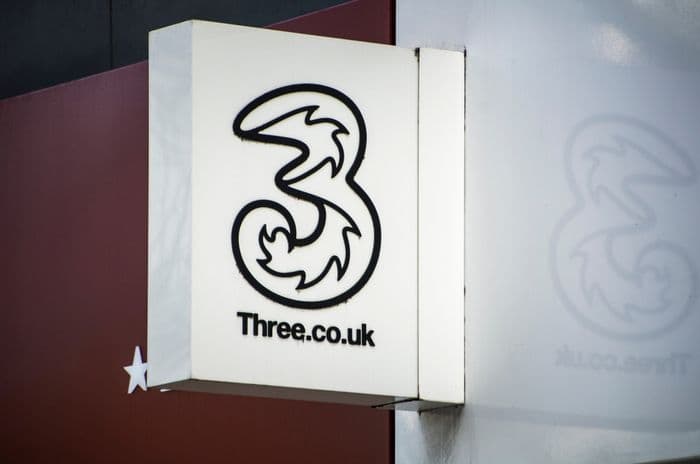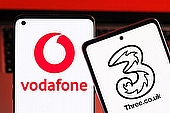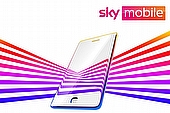Home > Mobile > News > Three roll out free in store Sign Language service
Three roll out free in store Sign Language service
THREE have launched a free in-store British Sign Language (BSL) service for customers with hearing difficulties, the first of its kind in the UK mobile phone industry.

The service will give customers the ability to communicate with on-site sales assistants through the mediation of a BSL interpreter, who will be accessible via video link.
Beginning as a pilot at four locations in England and Wales, the service will potentially be rolled out throughout the UK in the event of the trial's success, although there are no concrete plans as of yet.
And while the other three big mobile network operators offer similar BSL services on their websites, Three's introduction of in-store interpretation is not only recognition of how central to all of our lives the smartphone has now become, but of how much commercial potential remains untapped when it comes to customers with different needs.
Getting the most out of your mobile
Lowest cost mobile phone tariffs
Subtitles: who does it best?
What are the causes of digital exclusion?
Three's pilot has been three years in the making, beginning when the operator partnered with BSL specialists Sign Solutions, who have helped them bring sign language interpretation features to their website.
Now, Three have announced they're extending their partnership with the Birmingham-based company, so as to bring much the same service to their stores, following in the footsteps of such banks as Barclays.
Essentially, the service is a video relay one, through which deaf customers will be able to speak to sales assistants through the help of a BSL interpreter, who will be virtually on hand thanks to an iPad.
By providing this service, Three are hoping to enable hard of hearing customers to "get the most out of their mobile services". Presumably, they expect that customers will be better able to choose a device that will better suit their particular needs, such as phones that enable haptic feedback or text phones that have an in built keyboard (or at least can be linked to one).
Speaking on how it will benefit customers with hearing needs, Three's Head of Executive Office Operations, Steven Cocker, said, "This pilot extends on our commitment to give all of our customers the best possible experience with Three ... We introduced Video Relay for customers online three years ago and are excited to be able to build on this service in-store".
Sites and figures
Of course, the only downside at the moment is that, as mentioned above, the in-store service is currently available in only four Three shops, listed below:
- London White City - Westfield London Shopping Centre
- Burnley - The Mall
- Cardiff - Capitol Shopping Centre
- Liverpool - Church Street
More may follow in the future, yet this all obviously depends on the success of the pilot, and on whether it offers advantages for the hearing impaired beyond what can be found online.
It may go without saying, but it also depends on whether it offers commercial advantages for Three, who no doubt are very happy to publicise what they're doing to make the mobile phone industry more accessible.
And there's a very good chance that it will confer commercial advantages, since not only is British Sign Language the preferred language of choice for 87,000 people in the UK, but around nine million Brits are either deaf or hard of hearing.
Given such a large figure, it's little wonder that a report published by Action on Hearing Loss in April found that the UK economy is losing £24.8 billion a year in potential output due to a lack "deaf awareness" among employers and society in general.
In other words, there's a massive amount that those with hearing difficulties could be contributing to the UK, and Three appear to know this.
Online BSL
That said, they're not the only mobile network making efforts to look after their customers, since virtually every provider runs some kind of online BSL service.
For example, Vodafone, EE, and O2 (and Three) all offer their customers the Next Generation Text Service (NGTS), which was first made available to the public by BT in 2014.
Similarly, they all offer an online SignVideo or Video Relay Service for BSL, so that customers can communicate with customer service departments once again via the help of an interpreter.
One of the earliest adopters of such services in the telecoms industry were Virgin Media in 2014, and since then it has become fairly common to offer these facilities or something very similar.
And even if there's always more that companies could be doing to make things easier for their customers, this prevalence goes to show that mobile operators take accessibility very seriously, just as their customers take mobiles seriously.
Get insider tips and the latest offers in our newsletter

We are independent of all of the products and services we compare.

We order our comparison tables by price or feature and never by referral revenue.

We donate at least 5% of our profits to charity, and we aim to be climate positive.
Latest News

19 December 2025
Ofcom investigates BT and Three after mobile call outages
19 December 2025
VodafoneThree brings 400 customer service jobs back to the UK
8 November 2025
Vodafone and Three UK to hike mid-contract price increasesGet insider tips and the latest offers in our newsletter


